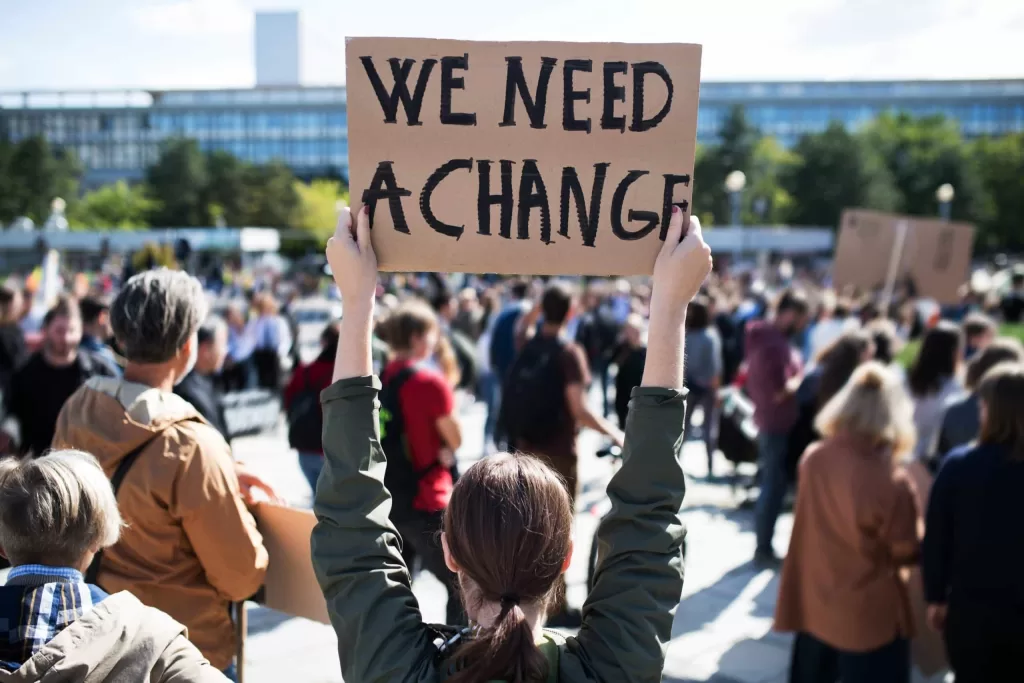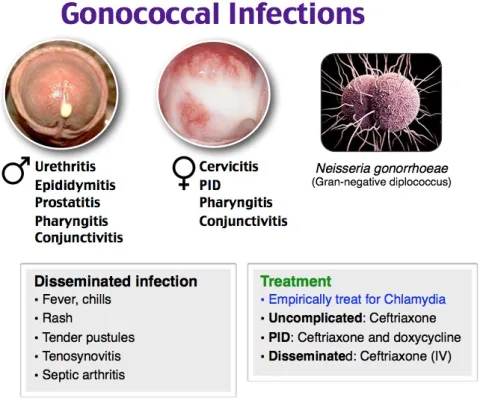Social injustice is a critical issue that continues to plague societies across the globe, leading to significant health disparities that ultimately cost lives. According to a new report by the World Health Organization (WHO), the social determinants of health play a crucial role in creating these inequalities, which have been exacerbated by the COVID-19 pandemic. Economic inequality, alongside high maternal mortality rates, illustrates the urgent need for health equity among all populations, especially in low-income countries. Indeed, children in poorer regions are still suffering disproportionately, with rates of under-five mortality showing a stark contrast to their wealthier counterparts. As we delve into the factors contributing to social injustice, it becomes increasingly clear that a collaborative effort is necessary to bridge the gaps in health outcomes and improve the quality of life for everyone.
The concept of social inequity encompasses the systemic barriers that inhibit fair access to resources and opportunities, resulting in unequal health outcomes for various groups. Often, these disparities are heightened by socioeconomic factors, where the less affluent groups face greater health risks and poorer living conditions. Terms such as health inequity and disparities in health outcomes highlight the uneven distribution of well-being and resources across different segments of society. Moreover, issues like maternal health risks and the broader implications of economic disparity further complicate our understanding of health determinants. Addressing these pressing concerns requires a multifaceted approach targeted at dismantling the social frameworks that perpetuate these injustices.
Understanding Social Injustice and Health Disparities
Social injustice encompasses the systemic inequalities that prevent marginalized groups from accessing the resources, opportunities, and rights that are commonly enjoyed by those in privileged positions. These injustices manifest vividly in health disparities, resulting in stark contrasts in health outcomes across different demographics, particularly when analyzed through the lens of the social determinants of health. Factors such as income, education, environment, and social status play pivotal roles in shaping individual health outcomes, as suggested by the recent WHO report. Just as a sturdy building requires a solid foundation, the well-being of populations is fundamentally linked to equitable conditions within their societies.
The WHO outlines alarming statistics that exemplify these disparities. For instance, individuals born in the least advantaged countries may live up to 33 years shorter lives than their counterparts in more affluent nations. This significant gap underlines the urgent need for addressing social injustice as a prerequisite for achieving health equity. Without proactive measures to dismantle barriers and ensure access to healthcare and education for all, these disparities will only continue to widen, reinforcing cycles of poverty and ill-health.
The Impact of COVID-19 on Health Equity
The COVID-19 pandemic has acted as a magnifying glass, illuminating existing disparities within health systems and exposing the vulnerabilities faced by low-income populations. The data from the WHO report highlights that inequity in COVID-19 outcomes was exacerbated by unequal access to critical health resources, including vaccines and diagnostic tools. Unfortunately, communities already struggling with economic inequality experienced disproportionate impacts from the pandemic, which further entrenched social injustices and undermined the progress towards health equity aimed for by 2040.
The pandemic’s fallout has not only resulted in tragic health outcomes, such as increased maternal mortality rates among disadvantaged groups, but has also widened the chasm of economic inequality. Countries with substantial sovereign debt find it increasingly challenging to invest in necessary healthcare infrastructure or social programs aimed at addressing these disparities. Therefore, moving forward, it is essential to leverage the lessons from these challenges to create robust strategies that promote health equity, not just as an aspirational goal, but as a fundamental right for all individuals.
Addressing Economic Inequality for Health Equity
Economic inequality is a critical determinant affecting health equity on a global scale. The WHO emphasizes the need for comprehensive strategies that address the financial barriers faced by marginalized populations in accessing healthcare services. One of the suggested recommendations is to increase investments in social infrastructure and universal public services that can alleviate some of the burdens imposed by poverty. By prioritizing health in economic planning, countries can enhance access to essential services, thereby contributing to better health outcomes and reducing disparities associated with economic status.
Moreover, tackling economic inequality requires a multi-faceted approach. It is vital to ensure that healthcare systems are not only accessible but also equitable, providing care that meets the specific needs of diverse communities. The report points out the importance of universal social protection systems that can buffer the impacts of economic shocks, ensuring that all individuals have access to healthcare regardless of their financial situation. As such, economic policies must prioritize health as a cornerstone of sustainable development, promoting equality and subsequently fostering a healthier population.
The Role of Structural Discrimination in Health Outcomes
Structural discrimination remains one of the most insidious barriers to achieving health equity, influencing outcomes across various populations. This form of discrimination manifests through institutional practices and societal norms that disadvantage certain groups based on race, gender, disability status, and other factors. The WHO report illustrates that marginalized groups, including women and people of color, are often disproportionately affected by adverse health conditions such as maternal mortality rates, especially in resource-limited settings. Addressing these inequities is paramount for creating an inclusive healthcare environment.
To dismantle the effects of structural discrimination, concerted efforts are needed across multiple sectors, including healthcare, education, and policy-making. The recommendations from the WHO highlight the importance of recognizing and actively combating the factors perpetuating these disparities. By fostering environments that promote inclusivity and equitable access to health resources, substantial strides can be made towards closing the gap in health outcomes. These efforts will not only enhance individual health but also contribute to the overall resilience of communities.
Navigating Climate Change’s Impact on Health Equity
Climate change poses significant challenges to health systems worldwide, amplifying vulnerabilities for already disadvantaged populations. The WHO emphasizes that individuals affected by economic inequality, substandard living conditions, and limited healthcare access are likely to experience the most severe impacts of climate-related health issues. Extreme weather events, shifts in disease patterns, and resource scarcity can exacerbate existing health disparities, making it crucial to integrate climate change considerations into health equity initiatives.
Mitigating the health impacts of climate change requires innovative solutions that promote resilience among vulnerable populations. The WHO report stresses the importance of utilizing digital transformation and community engagement to enhance health equity in the context of climate change. By addressing environmental factors as key determinants of health and integrating adaptability strategies into health policies, systems can better prepare for future challenges while ensuring all communities can thrive.
Strengthening Governance to Achieve Health Equity
Effective governance is a cornerstone of achieving health equity, as it determines how resources are allocated and policies are structured. The WHO’s recommendations emphasize the need for governance arrangements that support health equity initiatives and maximize the coherence of actions across sectors. By fostering collaboration among governmental, non-governmental, and community-based organizations, especially in resource-limited settings, strategic planning can align diverse interests towards a common goal of equitable health outcomes.
Additionally, empowering local governments to implement health policies that reflect the unique needs of their communities is essential for addressing the social determinants of health. Strengthening local governance systems ensures that those most impacted by health disparities have a voice in the decision-making process. This inclusive approach not only contributes to more effective health interventions but also builds public trust and encourages community investment in their health outcomes.
Community Engagement in Health Equity Initiatives
Community engagement is crucial for fostering health equity, as it empowers individuals to take charge of their health and advocate for needed changes in their environments. The WHO’s report highlights the importance of involving community members in the design and implementation of health programs that address social determinants of health. By actively listening to and addressing the concerns of marginalized groups, health initiatives can be more effective and culturally appropriate, leading to improved health outcomes.
Furthermore, engaging civil society organizations can amplify the voices of those adversely affected by health inequities. These organizations often possess valuable insights into the barriers faced by communities and can help to bridge gaps between policymakers and the populations they serve. By facilitating dialogue and collaboration among diverse stakeholders, health equity initiatives can become more holistic and impactful in addressing the multidimensional facets of health disparities.
Monitoring and Data Collection for Health Equity
Robust monitoring and data collection are essential for understanding and addressing health disparities effectively. The WHO stresses the need for comprehensive data systems that can track social determinants of health and facilitate targeted interventions. By collecting and analyzing data disaggregated by income, geography, race, and other relevant factors, policymakers can gain deeper insights into the dynamics of health inequities and tailor responses to address specific challenges faced by marginalized populations.
Moreover, ongoing monitoring can contribute to accountability and transparency in health equity initiatives. When data is made accessible to the public, it fosters a collaborative atmosphere in which communities can hold leaders accountable for their commitments to closing health gaps. This level of engagement ensures that health equity remains at the forefront of policy discussions, leading to sustained efforts toward overcoming the disparities exacerbated by structural inequalities.
Advocating for Universal Healthcare Coverage
Advancing universal healthcare coverage is a critical step towards achieving health equity, as outlined in the WHO’s recommendations. Universal health coverage (UHC) aims to provide all individuals with access to essential health services without the risk of financial hardship. This approach not only improves overall health outcomes but also reinforces the notion that healthcare is a fundamental human right, as opposed to a privilege for the economically advantaged. Prioritizing UHC can significantly reduce disparities in access and enhance resilience within communities.
Implementing UHC requires a shift in policy focus towards progressive health financing that addresses the unique needs of underserved populations. Systems must be designed to eliminate financial barriers, ensuring that everyone has the opportunity to receive timely and appropriate care. By collectively advocating for UHC, societies can move towards a more equitable and just healthcare system that champions the health of all individuals, regardless of their background.
Frequently Asked Questions
How does social injustice impact health equity?
Social injustice significantly impacts health equity by creating disparities in access to healthcare resources, quality medical services, and healthy living conditions. Factors such as economic inequality, education, and discrimination contribute to unequal health outcomes, exacerbating issues like maternal mortality rates and overall life expectancy.
What role do social determinants of health play in social injustice?
Social determinants of health, including socioeconomic status, education, and environment, play a crucial role in perpetuating social injustice. They influence individuals’ ability to access necessary healthcare, leading to significant health disparities, particularly evident during crises like COVID-19, which has highlighted existing economic inequalities.
How did COVID-19 disparities reflect social injustice?
The COVID-19 pandemic exposed and intensified social injustice as marginalized populations faced greater health risks due to inequitable access to vaccines, testing, and healthcare resources. Economic inequality was a significant factor, contributing to disproportionately high COVID-19 infection and mortality rates among disadvantaged communities.
Why are maternal mortality rates a concern in discussions of social injustice?
Maternal mortality rates are a key indicator of health equity and social injustice, highlighting the disparities in access to quality healthcare during pregnancy and childbirth. Women from marginalized groups face higher risks, and these inequities are exacerbated by factors such as economic inequality and systemic discrimination.
What actions can be taken to address economic inequality related to social injustice?
To combat economic inequality linked to social injustice, initiatives must focus on funding universal public services, investing in social infrastructure, and implementing policies that promote equitable access to healthcare. These actions can help bridge the gaps in health equity and improve population health outcomes.
How does structural discrimination contribute to social injustice in health outcomes?
Structural discrimination contributes to social injustice by systematically undermining the health and wellbeing of marginalized groups. Factors such as race, gender, and socioeconomic status influence access to healthcare, resulting in significant disparities in health outcomes, including higher rates of chronic diseases and maternal mortality.
What are the long-term effects of social injustice on overall public health?
The long-term effects of social injustice on public health include persistent health disparities, reduced life expectancy, and increased rates of chronic illness among disadvantaged populations. This ongoing cycle of inequity can strain healthcare systems and hinder overall societal progress.
How can communities engage to promote health equity amid social injustice?
Communities can promote health equity by engaging in advocacy, raising awareness about social determinants of health, and fostering collaborations with local governments and organizations. Empowering civil society and supporting grassroots efforts are essential for addressing the root causes of social injustice.
What is the importance of addressing social determinants in health policies?
Addressing social determinants in health policies is vital for achieving health equity. By recognizing and targeting the underlying factors that drive health disparities—such as economic inequality and access to education—policymakers can implement strategies that improve health outcomes for all populations.
What recommendations has the WHO provided to tackle health disparities tied to social injustice?
The WHO recommends several strategies, including tackling economic inequality, expanding social protection systems, addressing structural discrimination, and ensuring equitable access to healthcare services. These initiatives aim to promote health equity and mitigate the adverse effects of social injustice on health outcomes.
| Key Point | Details |
|---|---|
| Health Disparities | Significant differences in life expectancy exist; for example, individuals in the country with the lowest healthy life expectancy live 33 years less than those in the highest. |
| Child Mortality | Children in poorer countries are 13 times more likely to die before age 5 compared to those in wealthier countries. |
| Inadequate Progress Since 2008 | Current report highlights that despite some improvements since 2008, the world is still falling short of health equity goals set by WHO. |
| Impact of COVID-19 | COVID-19 has worsened health disparities, particularly in low- and middle-income countries due to inequitable access to healthcare resources. |
| 14 Recommendations for Action | The WHO outlines 14 recommendations focused on reducing economic inequality, overcoming discrimination, promoting health equity amidst climate change, and improving governance. |
| Call to Change | WHO Director-General emphasizes that global change towards equity is achievable despite current inequalities. |
Summary
Social injustice is killing people on a grand scale, as highlighted in the new WHO report that underscores significant health disparities caused by social determinants of health. The report reveals alarming statistics, such as the stark differences in life expectancy and infant mortality rates between low- and high-income countries. Despite some progress since 2008, the persistent inequalities have been exacerbated by factors like the COVID-19 pandemic, which disrupted healthcare and widened existing gaps. With 14 crucial recommendations aimed at addressing economic inequality, tackling discrimination, and enhancing healthcare governance, the report calls for urgent action to achieve health equity and underscores the need for collective efforts to combat social injustice globally.
The content provided on this blog (e.g., symptom descriptions, health tips, or general advice) is for informational purposes only and is not a substitute for professional medical advice, diagnosis, or treatment. Always seek the guidance of your physician or other qualified healthcare provider with any questions you may have regarding a medical condition. Never disregard professional medical advice or delay seeking it because of something you have read on this website. If you believe you may have a medical emergency, call your doctor or emergency services immediately. Reliance on any information provided by this blog is solely at your own risk.








